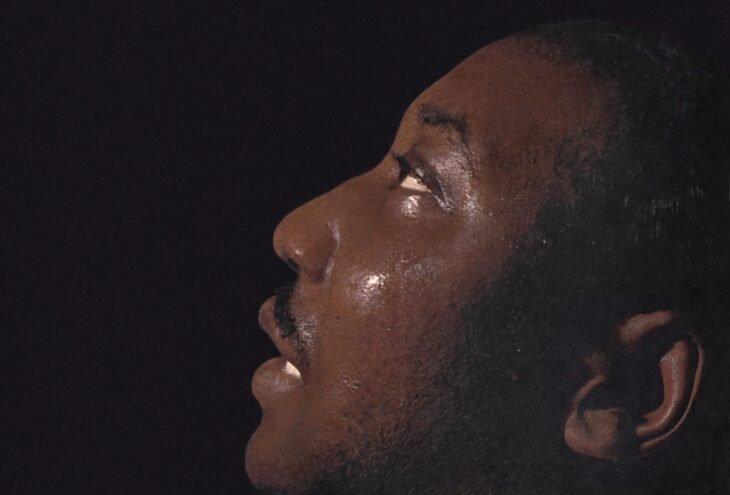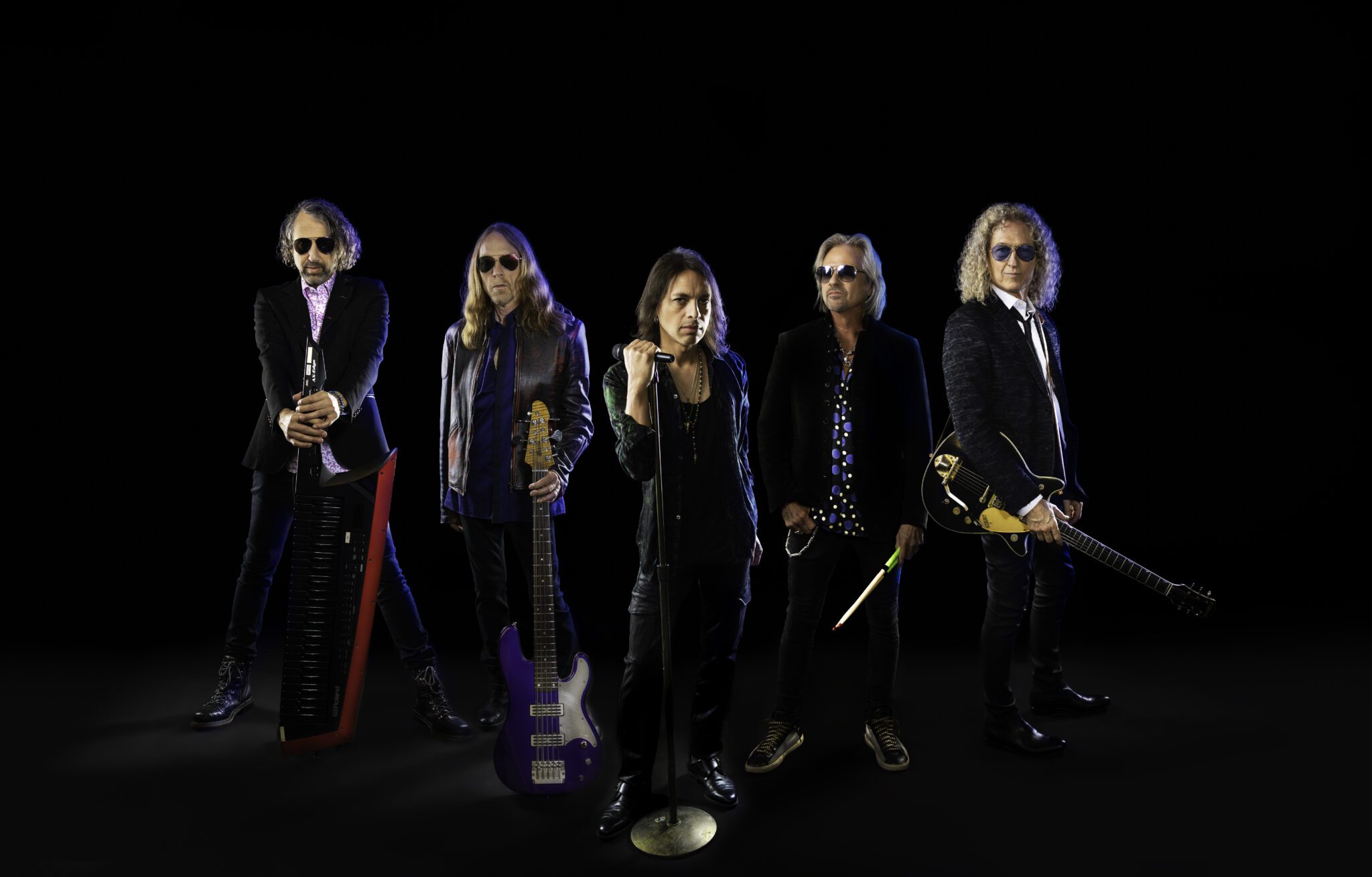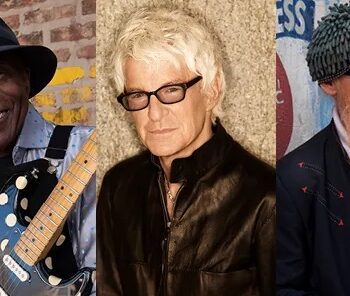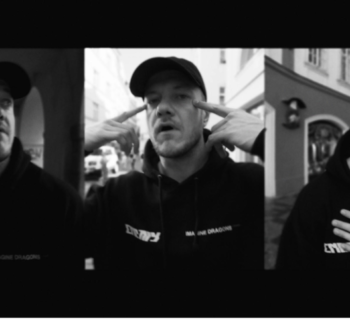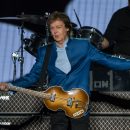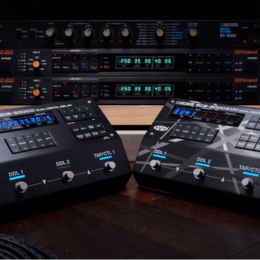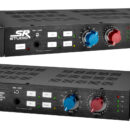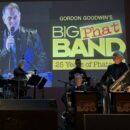Two definitive blues albums, The Best of Muddy Waters and Moanin’ in the Moonlight, are each, in their own right, a powerful collection of blues songs that include essential tracks like “Hoochie Coochie Man”, “Rollin’ Stone” and Howlin’ Wolf’s Moanin’ in the Moonlight, the haunting debut that introduced Wolf’s signature growl on classics such as “Smokestack Lightnin’” and “Evil.” They are now remastered from the original analog tapes and cut to lacquer by Matthew Lutthans at The Mastering Lab at Quality Record Pressing (QRP). Housed in archival quality tip-on gatefold jackets and pressed on 180-gram vinyl at QRP, they offer both audiophiles and collectors a premium listening experience.
Additionally, the Chess/Acoustic Sounds series has upcoming titles: Chuck Berry’s Berry Is On Top, featuring fundamental rock & roll anthems that include “Johnny B. Goode” and “Roll Over Beethoven,” and Etta James’ landmark album At Last!, an incredible vocal blending of soul, jazz, blues and gospel that contains the timeless title track, “At Last,” (and for which a new analog master tape was recently discovered) and the classic, “Something’s Got a Hold on Me.” From electrifying Chicago blues and rock & roll to stirring soul and R&B, Chess Records helped shape American music and inspired generations worldwide. Out November 14th are two brand new compilation albums, The Chess Records Christmas Album and Let’s Play Chess: A Chess Record Anthology. Founded in 1950 by Polish immigrant brothers Leonard and Phil Chess, Chess Records emerged from the south side of Chicago and quickly crossed lines of color and culture to create rhythm and blues music that influenced listeners the world over. Chess’s unmatched roster—and its savvy founders—enhanced and transformed the blues from folk music to a popular sound.
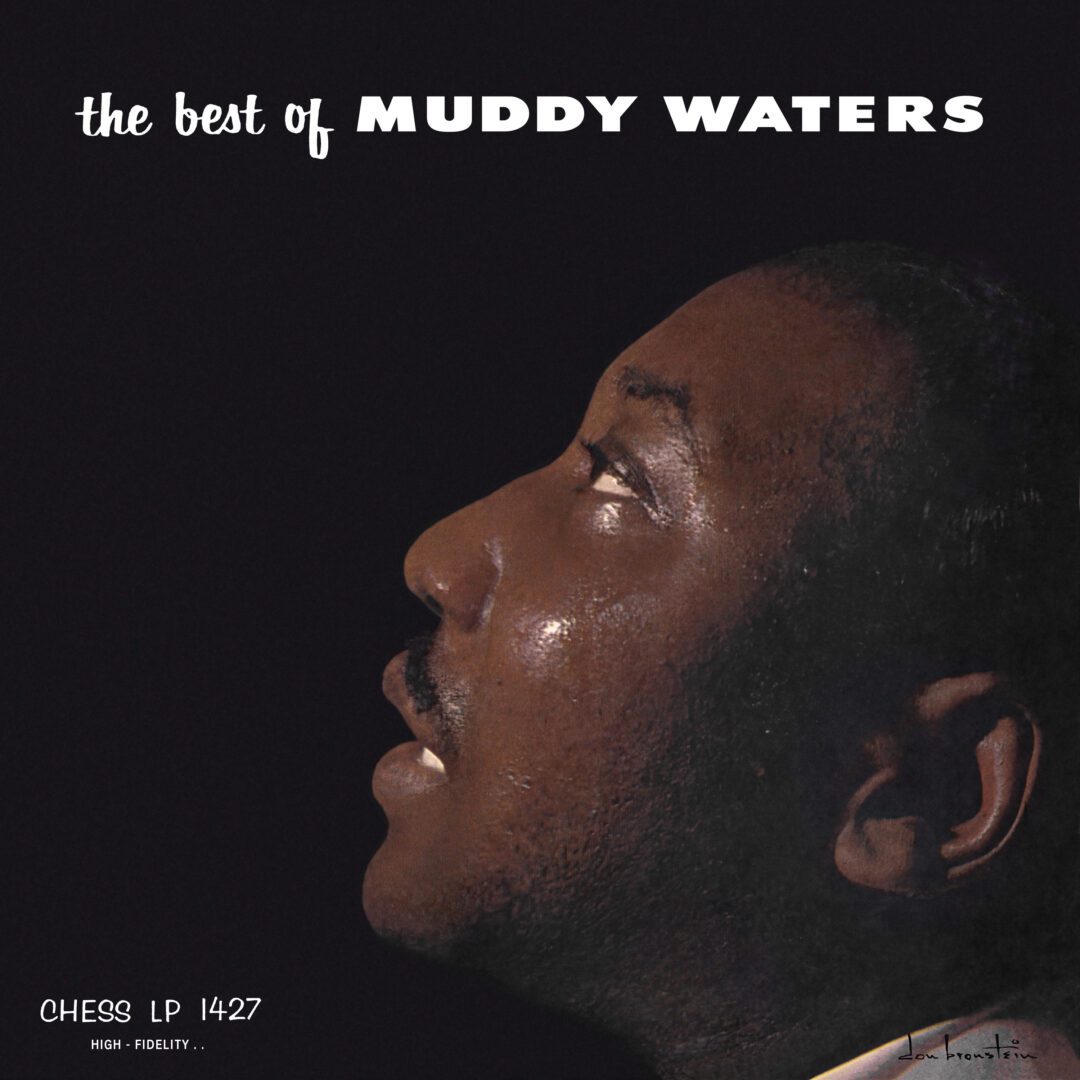
Born McKinley Morganfield in Mississippi in 1915, Muddy Waters was initially a sharecropper playing his acoustic guitar for change and tips at rural plantation parties. He migrated to Chicago in 1943 where he brought together a pipeline of the city's top musicians to create, refine and define the modern blues. While he was undergoing this transformation, millions of rural Southern blacks were making the same journey, and their stories and music were working into the popular consciousness – and capturing the imagination of a restless teenage suburbia increasingly open to new things in the rebellious 1960s.
An assemblage of Waters 78 RPM recording made between 1948 and 1954 for Chess Records, The Best of Muddy Waters captured Waters' growth from acoustic artist to archetypical electrified band leader and charted the exciting evolution of blues.
Between the thematically fitting bookends of opener "I Just Want to Make Love to You" and unforgettable closer "I Can't Be Satisfied," the LP laid the blueprint for modern blues, rock and even country music, with monumental recordings like "Rollin' Stone," "Honey Bee" and "(I'm Your) Hoochie Coochie Man."
Waters' deeply emotional, often foreboding and always mysterious music helped inspire the imagination of acts such as the Rolling Stones – who take their name directly from Waters' music – the Paul Butterfield Blues Band, Eric Clapton, Jeff Beck, John Mayall, Fleetwood Mac, Savoy Brown Blues Band, Led Zeppelin, The Band and so many others.
These artists in turn took their love and appreciation of Waters to millions of listeners and aspiring musicians, creating a timeless feedback loop that continues with each generation. Waters' music arrived at important crossroads moments in both the blues man's personal life and that of the nation.
The re-release The Best of Muddy Waters gives fans a chance to examine this masterpiece again, that both inspires creative genius and entertains casual fans in ways that changed popular culture.
The Best of Muddy Waters track listing:
Side A
1. I Just Want To Make Love To You
2. Long Distance Call
3. Louisiana Blues
4. Honey Bee
5. Rollin' Stone
6. I'm Ready
Side B
1. Hoochie Coochie
2. She Moves Me
3. I Want You To Love Me
4. Standing Around Crying
5. Still A Fool
6. I Can't Be Satisfied
Marshall Chess, born in Chicago, Ill. on March 13, 1942, and was raised during the heyday of the independent record business. His uncle Leonard Chess had a piece of a record company named Aristocrat Records in 1947, and later in 1950 he brought his brother Phil into the fold and the brothers assumed sole ownership of the company and renamed it Chess Records.
Marshall “started” in the family business at age 7 initially accompanying his father Leonard on radio station visits. For sixteen years Marshall worked with his dad and his uncle Phil, doing everything from pressing records, applying shrink wrap and loading trucks to producing over 100 Chess Records projects, eventually heading up the label as President after the GRT acquisition in 1969. Over years the monumental Chess catalog has had various homes, including a 1975 sale to All Platinum Records, and eventually a couple of decades ago the Chess master tapes were purchased by MCA Records, now Universal Music Enterprises.
After departing from Chess Records in 1969, Marshall helped form and ran Rolling Stone Records for seven years. He helped create the Rolling Stones famous tongue and lip logo and was involved as Executive Producer on 7 Rolling Stone #1 albums during the 1970’s.
In 2009 and 2010 I interviewed Marshall about the sonic legacy of Chess Records, Muddy Waters and Howlin’ Wolf.
“Muddy Waters and B.B. King really dug white people doin’ their stuff. Sonny Boy was very much into white people doin’ his stuff. So was Howlin’ Wolf.
“It blew our mind. Of course it was a fantastic thing. We loved it. And we never thought that could happen. It was a total fantasy. But we first noticed it with the Muddy At Newport album came out. I can remember we got all these orders from Boston on the Muddy album and we knew it was white people buying it. College kids. The first things we noticed as the album market developed.
“Muddy liked to drink. Muddy on stage and in the studio was the best. He was organized. He was a fuckin’ leader. I always say this. People say ‘what do you mean?’ He was a fuckin’ leader. Muddy was the reincarnation of a tribal chief, of a President, of a King. Such a powerful presence. I just loved him. And he treated me so good. He used to call me his white grandson. His wife Geneva used to send me fried chicken wrapped in foil. Muddy once wrote a poem to a girl for me that I gave when I was in high school. I always say this and people laugh but most of what I discussed with these guys was about sex. That was the main thing on their mind. Look at their lyrics.
“In the early days Chess utilized the Universal studio. The Weiner brothers designed the Chess studio. Chess employed great sound engineers like Malcolm Chisholm and Ron Malo. Weiner and Chisholm came from Universal. Then we built 2120 S. Michigan Ave. Jack Weiner was our original engineer. He built the console. Two Ampex 350 tape machines and Electro-Voice speakers on the wall. We then started experimenting with all kinds of echo.
“The Chess studio had the echo chamber in the basement, very small control room. One of the secrets of the Chess studio was not the studio but our mastering. We had a little mastering room with a lathe. Eventually we had a Neumann lathe. The first one was an American one. We did our own mastering. The great part about that room that when it sounded right in that mastering room it would pop off the radio. That’s what it was all about.
“All these magicians came to Chess. It’s something that can be experienced through audio. The music has stood up without a cinematic aspect like video and the method of recording. As I grew older, and was a person of the hippie generation and I discovered things like meditation, psychedelic drugs, and Buddhism. I realized what was happening in the early Chess studio was like a high Buddhist monk meditation manager. Because when you recorded in mono and two-track with 5 or 6 players and a singer there wasn’t any correction possible.
“One of the main jobs as a producer was like a meditation manager master. He had to get the band locked together to go down. The thing that this early music has is that it just has some fuckin’ kind of magic in it. I think maybe it’s the direct to two-rack recording of the period. I don’t know what it is. Some kind of esoteric alchemy.”
I saw Muddy Waters in clubs in Hollywood like The Troubadour in 1966, The Kaleidoscope in July 1968, two shows at Ash Grove during 1971 and The Roxy Theatre in 1978. I also caught him in San Francisco at The Last Waltz in 1976.
Chester Arthur Burnett, (June 10, 1910-January 10, 1976) better known to blues fans as Howlin' Wolf, remains one of the essential exponents of the electric blues. With a raw, booming voice and explosive guitar and harmonica styles to match, the Mississippi-bred Wolf made music that was unmatched in its primal ferocity.
Moanin' In The Moonlight is available as a special vinyl edition of the mono album. Remastered from the original flat master tape, this new edition features a high quality 150-gram black vinyl pressing housed in a printed sleeve with scans of the analog tape box and comes in a distinctive tip-on jacket reproducing the album's distinctive original cover artwork by Don S. Bronstein. The LP displays the 1959 liner notes from Billboard editor Paul Ackerman.
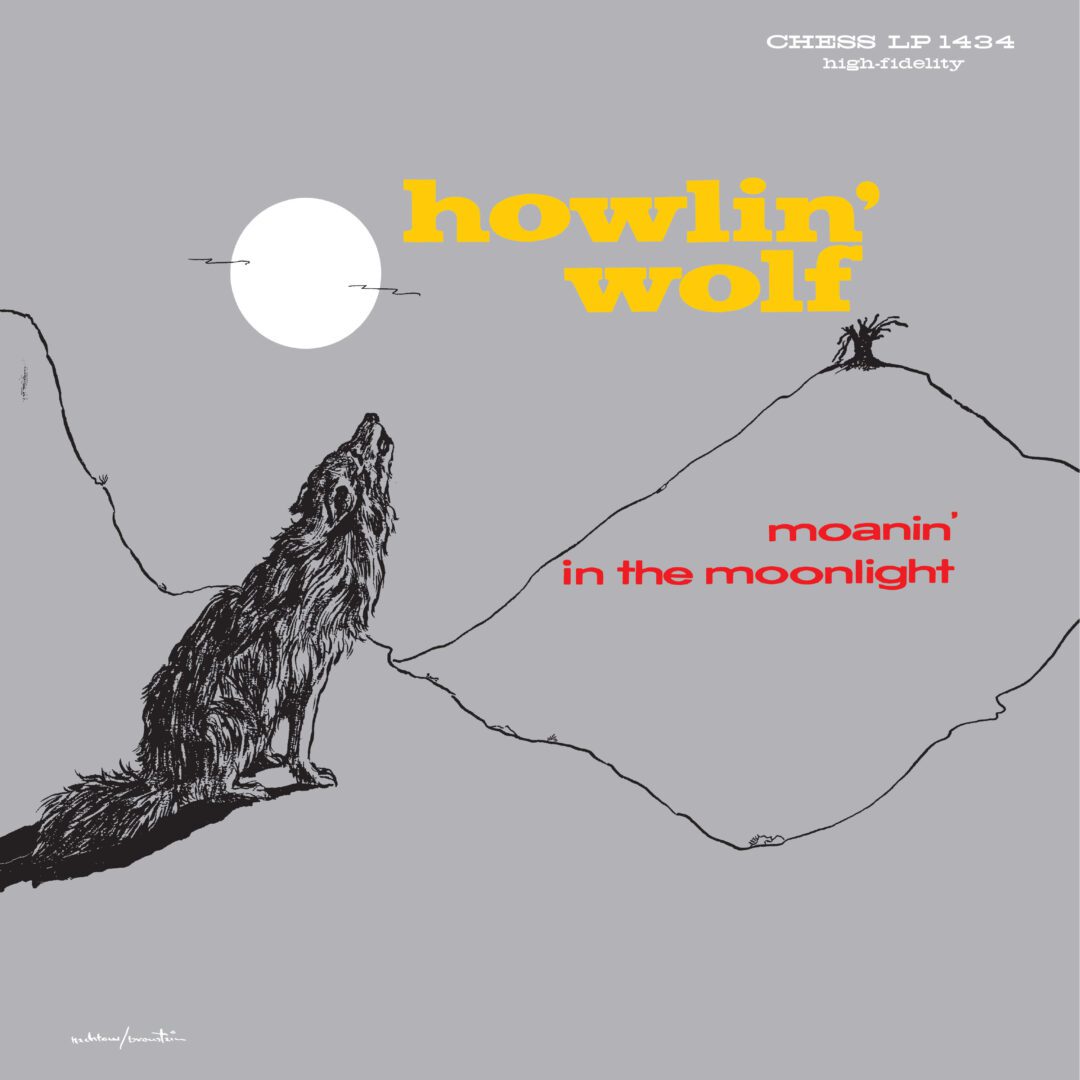
Howlin' Wolf performed throughout the South in the 1930s and 1940s, having reportedly learned to play guitar and harmonica from legendary bluesman Charlie Patton and Sonny Boy Williamson, respectively.
He was discovered in 1951 by deejay/musician and talent scout Ike Turner, who steered him to future Sun Records founder Sam Phillips, who recorded Wolf's early sides, some of which he licensed to Chess. Howlin’ Wolf eventually relocated to Chicago Illinois and began recording for Chess directly.
Like many LPs of the period, Moanin' In The Moonlight includes tracks stretching back several years, including a trio of numbers—"Moanin' at Midnight," "How Many More Years" and "All Night Boogie"—recorded in Memphis in the early '50s with Sam Phillips.
The album's nine remaining songs were recorded after Wolf's move to Chicago and produced either by label owners Leonard and Phil Chess, or by staff musician/songwriter Willie Dixon.
Moanin' In The Moonlight features four songs that had been hits on Billboard's national R&B charts: "Moanin' at Midnight", "How Many More Years," "Smokestack Lightning" and "I Asked for Water (She Gave Me Gasoline)."
“Moanin’ in the Moonlight, one of the most important American recordings of the 20th century collects 12 single records Wolf made in Memphis and Chicago between 1951 and 1956,” offered poet and deejay Dr. James Cushing.
“The voice that emerges from these recordings offers nothing less than the concentrated essence of the African-American masculine — a sensibility made strong as steel through suffering and yearning, tender and violent, excited and gloomy, hanging onto life while staring death in the face.
“Wolf’s lyrics epitomize the basic contradiction of American life: ‘I’m crazy about you but you know you have done me wrong,’ he pleas, and we hear all the promise and betrayal right there.
“As a 16-year-old listening to these songs (in a different sequence on the 1970 Chess ‘Vintage’ reissue, retitled Evil and given a more dramatic black and white cover), I was astonished at their sheer power, the grain of the giant voice bellowing into a single overloaded microphone, the explosive distortion of Willie Johnson’s guitar figures, and the sense that these lyrics came from a life that was more authentic than my own.
“It was the first time I ever heard adults making rhythm music (with drums and guitars!) about adult life and adult feelings. To listen to this Wolf LP was like overhearing one’s father delivering the deepest soliloquy you ever heard.”
In the years since his passing in 1976, Howlin' Wolf has been recognized for his musical achievements. He is a member of the Rock and Roll Hall of Fame, the Blues Hall of Fame, the Memphis Music Hall of Fame and the Mississippi Musicians Hall of Fame.
In 1987, Moanin' In The Moonlight was singled out for individual praise, receiving a prestigious W.C. Handy Award under the category of "Vintage/Reissue Album (US)."
MOANIN’ IN THE MOONLIGHT TRACK LISTING
SIDE A
1. Moanin’ At Midnight
2. How Many More Years
3. Smokestack Lightnin’
4. Baby, How Long
5. No Place To Go
6. All Night Boogie
SIDE B
1. Evil
2. I’m Leavin’ You
3. Moanin’ For My Baby
4. I Asked For Water (She Gave Me Gasoline)
5. Forty-Four
6. Somebody In My Home
I was startled by my first glimpse of Howlin’ Wolf in 1965 on the Jack Good-produced and Los Angeles-based Shindig! television series when he was a guest with the Rolling Stones where I attended a slew of ’65 tapings at the ABC-TV studios on Prospect Ave. He looked like a linebacker on The Los Angeles Rams football team!
I faintly recall seeing a note on a bulletin board one afternoon in a hallway at Fairfax High School from a candy striper alerting students about Howlin’ Wolf receiving dialysis treatment at the Veterans Administration building. Wolf spent two-and-a-half years in the US Army and at the time was suffering from kidney disease.
I remember hearing about Howlin’ Wolf coming to L.A. in 1968 when he was booked for a concert in the Girls Gymnasium at Valley Junior College.
Around the same time in June ’68, Wolf performed at the Ash Grove. In February 1972 he was on a show at the legendary Hollywood Palladium with Commander Cody and his Lost Planet Airmen headlined by Alice Cooper.
In my conversations with Marshall Chess, I asked about Howlin’ Wolf.
“We loved it and something we thought could never happen. Muddy Waters and B.B. King really dug white people doin’ their stuff. Sonny Boy was very much into white people doin’ his stuff. So was Howlin’ Wolf.
“I remember (Eric) Clapton gave him a fishing rod. Wolf was a real sportsman. He had fuckin’ huntin’ dogs that were a thousand dollars each. It blew our mind.
“Howlin’ Wolf on stage very commanding, but off stage a very gentle, soft man. I remember him telling me he was learning how to read music. Did you know that? He went to school to learn how to read music so he could learn how to play the guitar. He wanted to learn notes.
“One time my dad had me bring him a thousand dollars to his house, and he opened up those tool boxes that you lift off the tray at the top. And it’s stacked full of money. ‘What do you need this money for?’ ‘I gotta go buy some special dogs to go huntin’ on my farm.’ (laughs). He was a gentle man but ferocious. Big. He used to drink a lot. He was pretty much high a lot when he performed.
“The Chess recording artists were always writing about women problems and sex. That’s all I ever heard from them when I was a kid. I always say this and people laugh. That was the main thing on their mind. Look at their lyrics. I saw some of these records being recorded. I sold them originally.”
“Bill Graham at the Fillmore venue in San Francisco was the greatest for the blues artists of that era. B.B. King on the bills. FM radio was a Godsend for the blues. The big commercial AM stations would not play the records at all except some black stations. And I decided to repackage Chess to that market that was getting stoned and going deep. It was a big boost when the English groups covered the music earlier. On records and at their shows.”
(Harvey Kubernik is the author of 20 books, including 2009’s Canyon Of Dreams: The Magic And The Music Of Laurel Canyon, 2014’s Turn Up The Radio! Rock, Pop and Roll In Los Angeles 1956-1972, 2015's Every Body Knows: Leonard Cohen, 2016's Heart of Gold Neil Young and 2017's 1967: A Complete Rock Music History of the Summer of Love. Sterling/Barnes and Noble in 2018 published Harvey and Kenneth Kubernik’s The Story Of The Band: From Big Pink To The Last Waltz. In 2021 the duo wrote Jimi Hendrix: Voodoo Child for Sterling/Barnes and Noble.
Otherworld Cottage Industries in 2020 published Harvey’s Docs That Rock, Music That Matters. His Screen Gems: (Pop Music Documentaries and Rock ‘n’ Roll TV Scenes) is scheduled for December 2025 publication.
Kubernik wrote the liner notes to CD re-releases of Carole King’s Tapestry, The Essential Carole King, Allen Ginsberg’s Kaddish, Elvis Presley The ’68 Comeback Special, The Ramones’ End of the Century and Big Brother & the Holding Company Captured Live at The Monterey International Pop Festival. During 2006 Kubernik appeared at the special hearings by The Library of Congress in Hollywood, California, discussing archiving practices and audiotape preservation. In 2017 he lectured at the Rock and Roll Hall of Fame in Cleveland, Ohio, in their Distinguished Speakers Series. Amidst 2023, Harvey spoke at The Grammy Museum in Los Angeles discussing director Martin Scorsese's The Last Waltz music documentary.
Kubernik is in The Sound of Protest documentarynow airing on the Apple TVOD TV broadcasting service. https://tv.apple.com › us › movie › the-sound-of-protest. Director Siobhan Logue’s endeavor features Smokey Robinson, Hozier, Skin (Skunk Anansie), Two-Tone's Jerry Dammers, Angélique Kidjo, Holly Johnson, David McAlmont, Rhiannon Giddens, and more. Harvey is interviewed along with Iggy Pop, Bruce Johnston, Johnny Echols, the Bangles' Susanna Hoffs, Victoria and Debi Peterson, and the founding members of the Seeds in director Neil Norman’s documentary The Seeds - The Seeds: Pushin' Too Hard. This November 16, 2025, a DVD/Blu-ray is scheduled for release via the GNP Crescendo Company).

